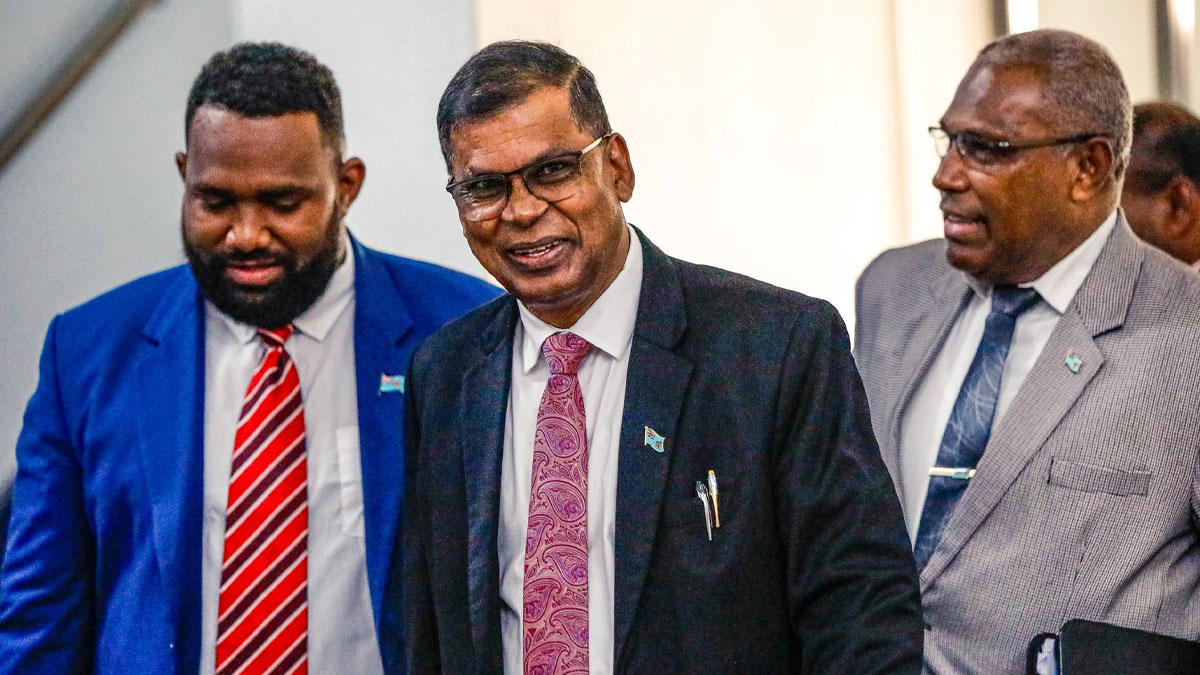
Pay increments for civil servants and those in the independent institutions, the increase in salaries and benefits of Members of Parliament, the President and the Speaker, and a new national minimum wage rate of $5 have been announced by Deputy Prime Minister and Minister for Finance, Professor Biman Prasad in the 2024/2025 National Budget.
Professor Prasad says they are announcing a major pay rise for our civil servants, which will inject almost $85 million into the pockets of our around 42,000 public sector employees. This pay rise ranges from 7 percent up to 20 percent depending on the salary bands.
He says unfortunately, the civil service has suffered from years of neglect with stagnant remuneration and deteriorating employment conditions.
Professor Prasad adds the civil service also suffered from lack of investment in adequate training, capacity building and poor succession planning.
He says under the disguise of OMRS, many career civil servants were denied promotions while those without any experience in the civil service were prioritized for senior leadership positions.
Professor Prasad says the 2013 constitutional provisions that removed the central oversight and establishment control of the civil service away from the Public Service Commission to respective Permanent Secretaries led to an uncontrolled growth in the size of the civil service.
He says today we have more than 42,000 publicly funded employees, including around 38,000 in the civil service and almost 4,000 in independent institutions and state funded entities. This comes at a huge cost of around $1.2 billion.
From 1st August 2024, all the salary based civil servants will receive a pay rise of around 7 percent to 10 percent while the wage earners will get an increment ranging from 10 percent up to 20 percent.
For example, the lowest wage in the civil service on Band A will be increased from $4.60 an hour to $5.60 an hour, an increase of 20 percent. Those on Band B receiving $6.27 an hour on step 3, will get a 16 percent increase, with a new hourly rate of $7.27. For our drivers who are currently getting $7.33 per hour on Band C, step 3, they will have their rates increased to $8.33 per hour, an increase of around 14 percent.
For the salary based civil servants, they will do this in a slightly different way. Given that around 5,000 of our civil servants have already had step movements in the last few months, all other 33,000 civil servants will also be given a salary increase and adjustment. For clarity, the increased salary for the 5,000 civil servants who got an early pay rise will continue.
Apart from this, Professor Prasad says they are also accommodating the pay rise of some of our independent institutions that have not had their Job Evaluation Exercise and a salary adjustment since 2017. This includes the Parliament staff, Legal Aid Commission, Office of the Director of Public Prosecutions and the Office of the Auditor-General.
Following a Job Evaluation Exercise recently, they are also providing an additional $12 million to cater for the salary increase for the officers at Fiji Corrections Service and an additional $2 million to hire 81 new staff. Following this major salary adjustment exercise in the civil service, they will work with the Australian Government to undertake a holistic functional review of the civil service establishment and salary structure across public entities.
Professor Prasad says there is an urgent need to bring parity in the salaries of publicly funded employees and right size the establishment.
He says at the same time, they need a new and effective Performance Management System in the civil service.
They are also exploring options for a medical insurance scheme for civil servants.
While confirming the budget for the increase, Professor Prasad says the overall increase in cost for the increase in the salaries and benefits of the Members of Parliament, President and Speaker is $4.2 million, not $8.1 million. He says if adjusted for the 20 percent COVID pay cut, the increase is in fact $1.4 million.
However he says as a Coalition Government, they agree that there must be a qualified and independent emoluments committee in future, a reasonable period for public consultation and careful consideration by MPs of the example they are setting, given their unique ability to vote for their own pay.
He says they believe that future emoluments review of MPs to be determined by an independent emoluments committee to be appointed by a resolution of parliament.
Professor Prasad also reveals that the national minimum wage will be increased to $5 per hour.
The actual implementation will be undertaken in 2 phases. Effective from 1st August 2024, the national minimum wage will be increased to $4.50 an hour with a further increase to $5.00 an hour effective from 1st April 2025.
In tandem, the 10 sectoral wages will also increase. Effective from 1st August 2024, all sectoral wages will increase by 50 cents across the board, followed by a further 50 cents from 1st April 2025.
For example, a cashier who is currently earning $4.44 an hour will have his or her minimum wage increase to $4.94 from 1st August 2024 and to $5.44 from 1st April 2025. A foreman in the construction industry currently on $6.54 will have his or her minimum wage increase to $7.54 from 1st April 2025.
He urges all our employers to ensure that correct minimum wages are paid to their workers and the Ministry of Employment will be closely monitoring to ensure full compliance.
The Coalition Government together with the Fiji Trades Union Congress and Fiji Mine Workers Union, have finally reached a resolution with a total payout of $9.2 million.
Each of the 368 mining workers on strike from 1991 will be paid $25,000, with the first $10,000 paid from this Budget and the remainder of $15,000 paid from the 2025-2026 Budget.
| 2024-2025 Budget Address | 2024-2025 Budget Supplement | 2024-2025 Budget Estimates |
More Budget Announcements
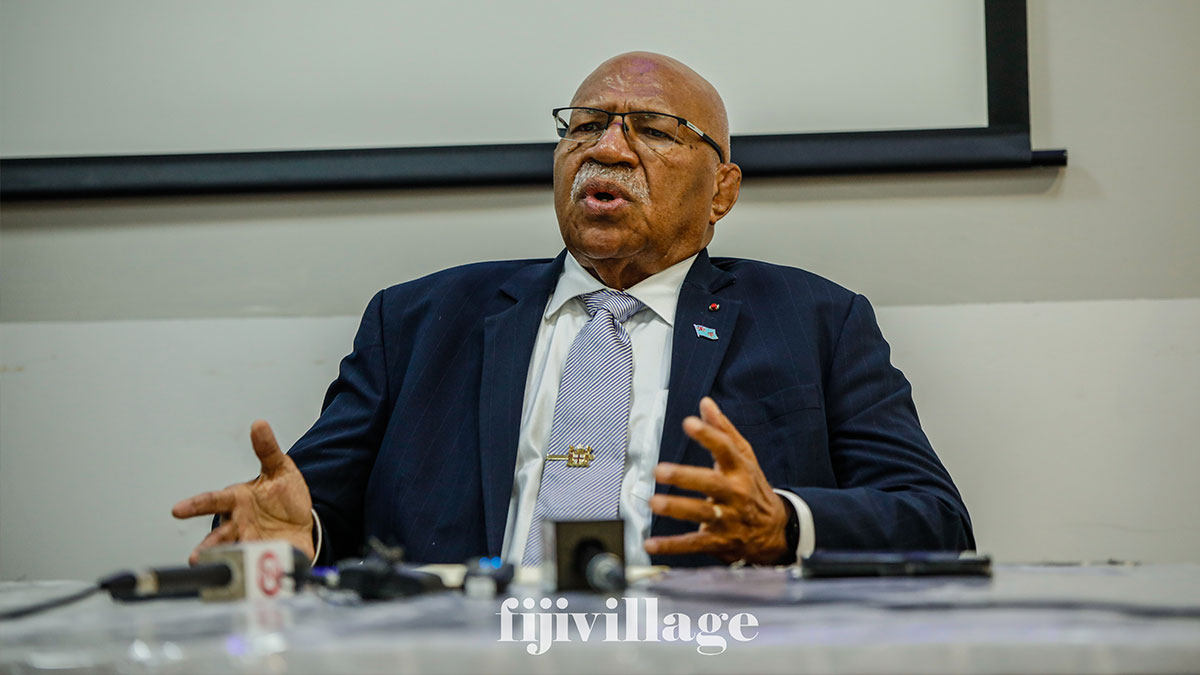
Prime Minister Sitiveni Rabuka says this is a good budget because the narrative behind the formulation of the budget is satisfying their contributions towards the sustainable development goals of the United Nations.
He says to do that we must allocate the resources according to what needs to be improved towards satisfying the pillars of the goals.
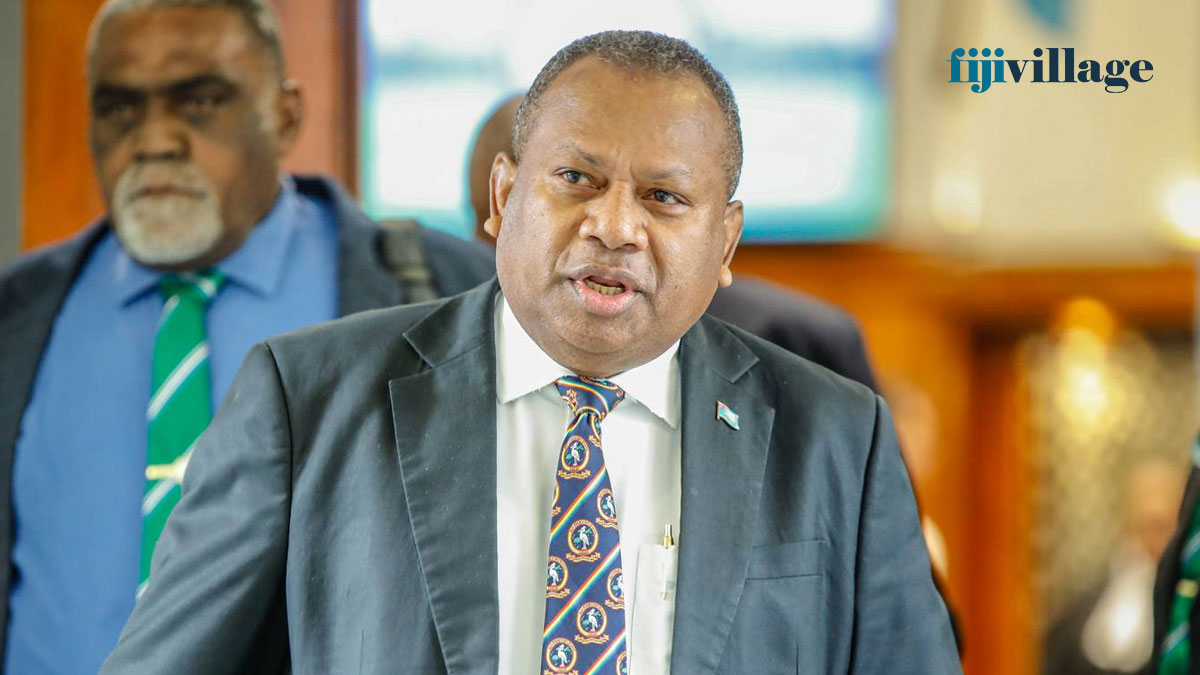
Leader of Opposition, Inia Seruiratu says it’s too early for him to comment on the 2024/2025 National Budget, but he is grateful that there was a lot of assistance provided for the people.
Seruiratu also acknowledged the Government’s move in increasing the pay for civil servants and also continuing with developments.
He says economic security compliments national security, and he will be looking at that in detail during the budget debate.
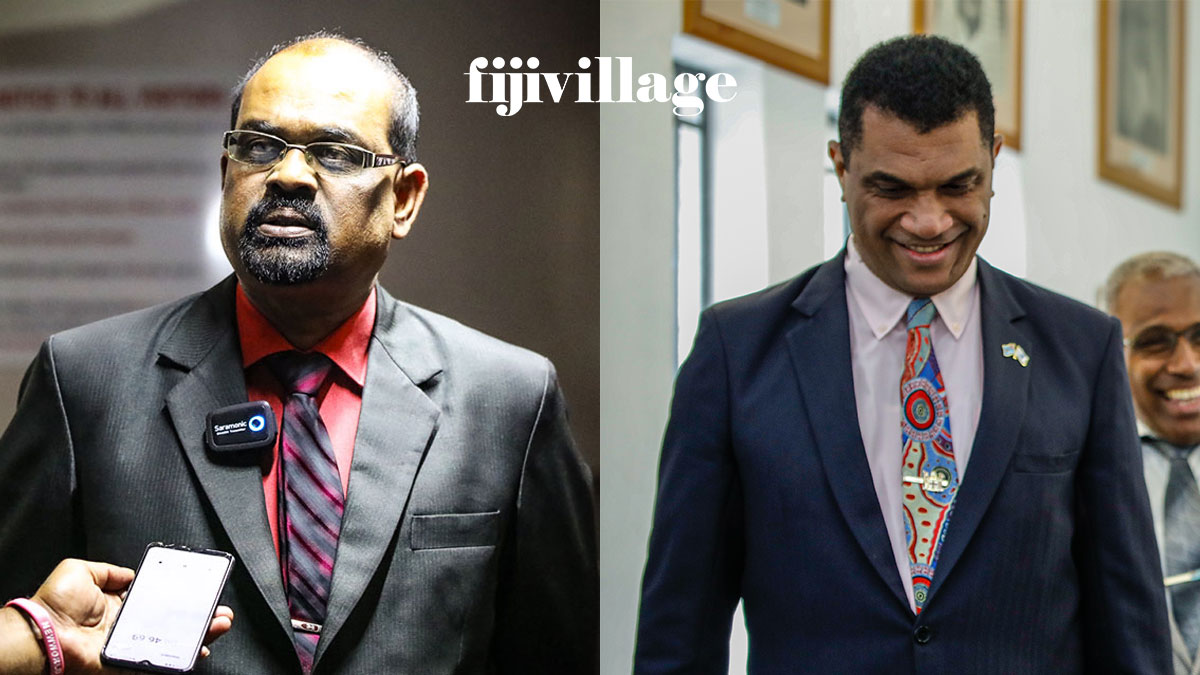
Fiji Teachers Union General Secretary, Muniappa Goundar says he is not satisfied with the budget as their demands are not met while the Minister for Education Aseri Radrodro says they will continue having discussions and will work in collaboration.
Goundar says the 7 and 10 percent increment for civil service staff is what was told to them during their meeting with the Deputy Prime Minister and Minister for Finance Professor Biman Prasad and that has not changed despite their demand of 30 percent.
He says the union will try to get the best out of what they are demanding.
When questioned by fijivillage News on teachers going on strike after their demands not being met, Radrodro says they are continuing discussions on that to ensure that everybody has a fair share of what is expected in the budget allocation.
He says they are happy that something has been given for their increment.
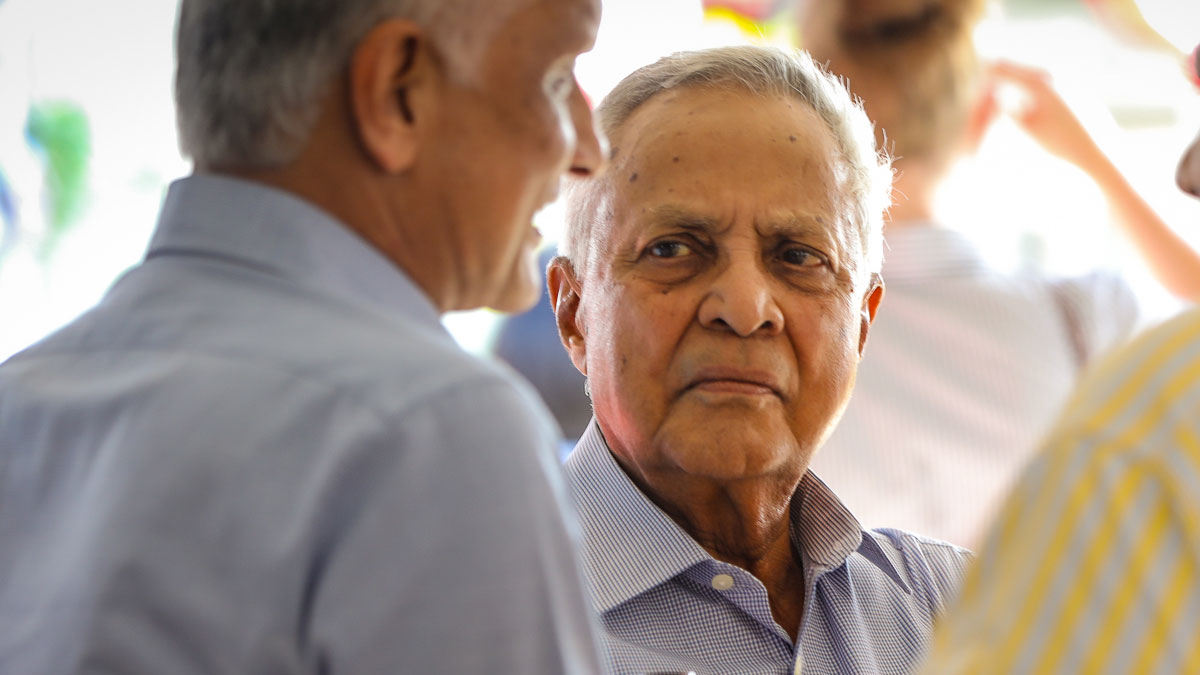
Fiji Labour Party Leader Mahendra Chaudhry says the National Budget 2024/25 does nothing to meet the expectations of ordinary people for relief from the soaring cost of living.
In a statement, Chaudhry says the Prime Minister gave an assurance that they were listening to the people's cry for relief, and the budget makes it clear that they did not listen at all.
He says it was just plain rhetoric to fool the people.
The FLP Leader adds except for cosmetic changes here and there, the suffering and hardship of the people at large will continue unabated.
Chaudhry says the 15 percent VAT imposed in the last budget remains, and the decision not to levy a dividend tax or rescind the 7-year tax holiday granted to Fiji Water signifies that the Coalition government is all about protecting the interest of the wealthy at the cost of the poor.
He says the increase in the minimum wage from $4 to $5 an hour is totally inadequate as it simply goes up by 50c from 1st August and a further 50c from 1st April 2025.
He further says in 2018, Deputy Prime Minister and Minister for Finance Biman Prasad was agitating for a $5 an hour minimum wage.
Chaudhry asks how Professor Prasad now justifies keeping it at the same rate six years later, despite the enormous jump in living costs brought about largely by his imposition of a 15 percent VAT in the last budget.
He says the social welfare allowance remains the same at $125 a month, and all he has done is add the $25 a month bus fare subsidy to the welfare payment.
Chaudhry says these are the people in the lower rungs of society most affected by high costs of living, and worse still, the eligibility age has increased from 60 to 65 years.
He adds Prof. Prasad’s claims that his government respects the rights of workers and trade unions is yet another rhetoric and rather hypocritical.
The FLP Leader says Prof. Prasad has totally undermined the right of trade unions to collective bargaining by unilaterally imposing pay increases of between 7-20 percent for established civil servants and a $1 an hour increase for those on hourly pay.
Chaudhry says the proposed increases fall far short of the claims of the unions and are not likely to be accepted by them.
He says at the same time, the government has shamelessly gone ahead and endorsed the increase in pay and allowances recommended by the Parliamentary Emoluments Committee.
He adds it has simply ignored the huge public anger at this act of self-interest.
The FLP Leader says they welcome the budget announcement that the government has finally brought closure to the long dispute over the Fiji Mine Workers Union and the FNPF pensioners.
He says more needs to be done here to reimburse Fund members who were forced to withdraw their savings to survive the COVID crisis, which rightly should have been the State’s responsibility.
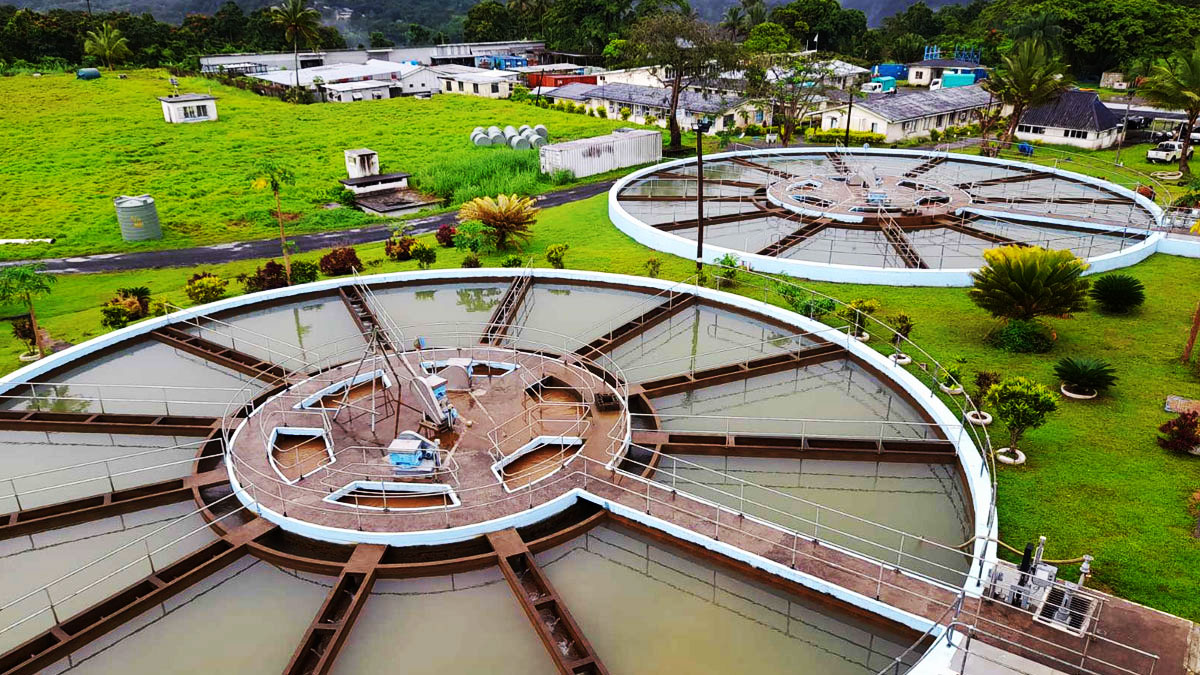
$259.4 million is allocated to the Water Authority of Fiji in the next budget where it receives about one-tenth of the income it needs to operate and invest sustainably.
Professor Biman Prasad says in the last 10 years, WAF has been dependent on Government grants which are only made known to it every six months and this makes it impossible to plan large expenditure or to borrow money for investment, except through the Government with the support of bilateral funders such as the Asian Development Bank and the European Investment Bank.
He says for water supply boreholes they are embarking on a major project to provide around 1,700 boreholes across the country - 1,000 in Viti Levu, 500 in Vanua Levu and 200 in our maritime islands.
The Deputy Prime Minister says this project will be undertaken in phases and today they are allocating $5.7 million to the Ministry of Lands and Mineral Resources and a task force will be established in partnership with the Ministry of Rural and Maritime Development, Water Authority of Fiji, the Ministry of Public Works and the Ministry of Finance.
He further says $2.7 million is allocated to the Drainage Board to maintain existing drainage systems and enhance water management practices.
Professor Prasad says $16.7 million to the Ministry of Waterways capital budget and $5.5 million to the Ministry of Sugar for drainage works.
He adds for all major rivers and in-land drainage systems, the Government will purchase specialized drainage and heavy-duty dredging equipment to undertake regular works on all inland drains, waterways, and major rivers throughout the year in the Central, Western and Northern Divisions and $1.5 million is provided for this project. Professor Prasad adds they have also allocated $2.8 million for protecting river banks and $1.2 million for managing watersheds.
The Fiji Roads Authority is allocated $354.8 million for the ongoing construction and maintenance of roads, upgrading and replacement of bridges and jetties and the upgrading of rural roads.
He says they are also undertaking a major national study on urban traffic particularly traffic between Nadi and Lautoka, Lami, Suva and Nausori corridor in conjunction with our development partners.
The Deputy Prime Minister says the Ministry has been allocated $5 million for the maintenance and upgrade of rural roads.
The Minister for Finance says the Government has also re-established the Public Works Department with increased funding of $8 million and the PWD will be gradually expanded over the years and will focus on rural roads and public buildings.
The Ministry of Public Works has been allocated with $721.4 million.
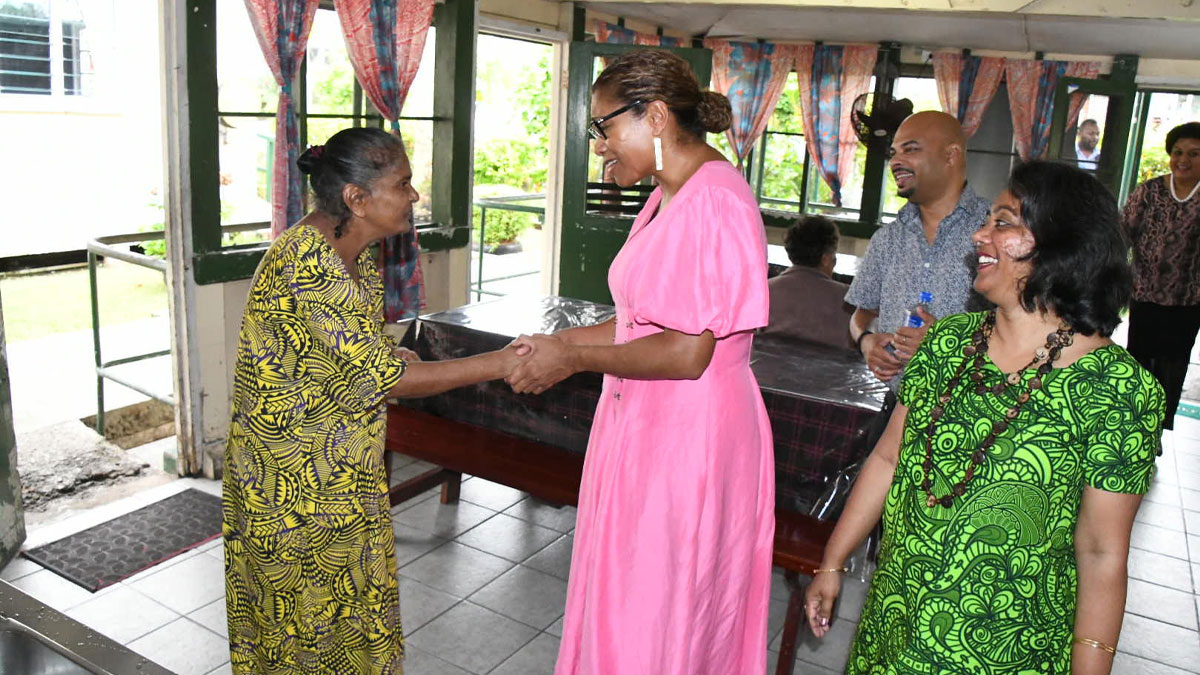
Social Welfare budget remains at $200 million which will assist 104,000 people under the family assistance scheme, social pension scheme, care and protection allowance, disability allowance, rural pregnant mother food allowance and transport assistance scheme.
While delivering the 2024-2025 National Budget, Deputy Prime Minister and Minister for Finance, Professor Biman Prasad says they are restructuring the transport assistance scheme for the elderly and people with disabilities.
Professor Prasad says currently, a monthly $25 bus fare allowance is provided to around 48,000 beneficiaries, however many of the elderly and people with disabilities do not have access to buses.
He says to bring greater flexibility and help them they will convert the bus fare allowance into a cash allowance of $25 per month for those with disabilities and the elderly, effective from 1st August 2024.
Deputy Prime Minister says all social pensioners above the age of 70 years and those on disability allowance will now receive a $25 per month cash allowance instead of bus card top-up.
He says pensioners over 70 will now receive a monthly cash allowance of $150, an increase from the current $125 monthly.
The Minister says to help rationalise the transport assistance scheme, they are also going to raise the entitlement age from 60 years to 65 years effective from 1st August 2024 and align it with the eligibility criteria for the social pension scheme.
He says this change will be only applied going forward, which means that those below this age who are already on the assistance system will continue.
Professor Prasad says promoting gender equality and the empowerment for women and girls is a top priority of the Coalition Government.
He says $1 million is provided to assist and empower women institutions, implement the Women's Plan of Action and strengthen the Domestic Violence helpline.
He further says they are working on strategies to increase the female labour force participation rate which currently stands at a low of 39 percent, compared to 77 percent for males.
This includes targeted training, provision of child care services at workplaces and adoption of gender-responsive budgeting.
Deputy Prime Minister adds they are also providing $500,000 for the Women’s Expo which provides an opportunity for our women from around the country to showcase their talents, market their products, generate income and encourage and empower other women in Fiji.
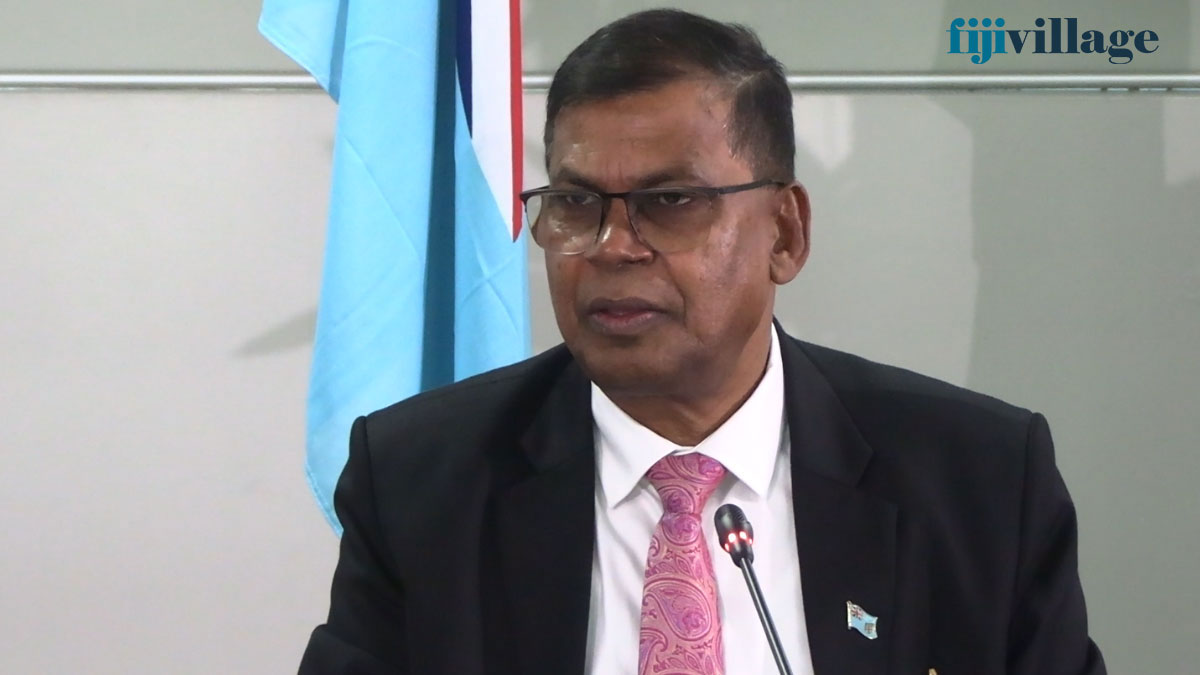
Following the progressive increase in the national minimum wage to $5 per hour, a call is being made to businesses to not pass this increase to consumers just because it is going to raise the cost of production.
While responding to questions by fijivillage News after delivering the 2024-2025 National Budget, Deputy Prime Minister and Minister for Finance, Professor Biman Prasad says it will be unethical for businesses who can afford to pay the increase to pass those increases in cost on to the consumers.
He says the Government is already giving a lot to businesses where the 3 percent duty on the importation of raw materials, machinery, and packaging material that are not manufactured and available locally has been removed and they did not bring back dividend tax and have not increased corporate tax.
Professor Prasad says the Government is open to looking at those employers who may face some difficulty and will assess them.
The Deputy Prime Minister also says raising the minimum wage will also raise productivity and increase economic activity as people will have more money to spend.
Meanwhile the increase in the wages and salaries of civil servants will cost the government an additional $66 million.
Professor Prasad says this money is coming from overall revenue efforts where they are going to collect about $3 billion in revenue by the end of this financial year.
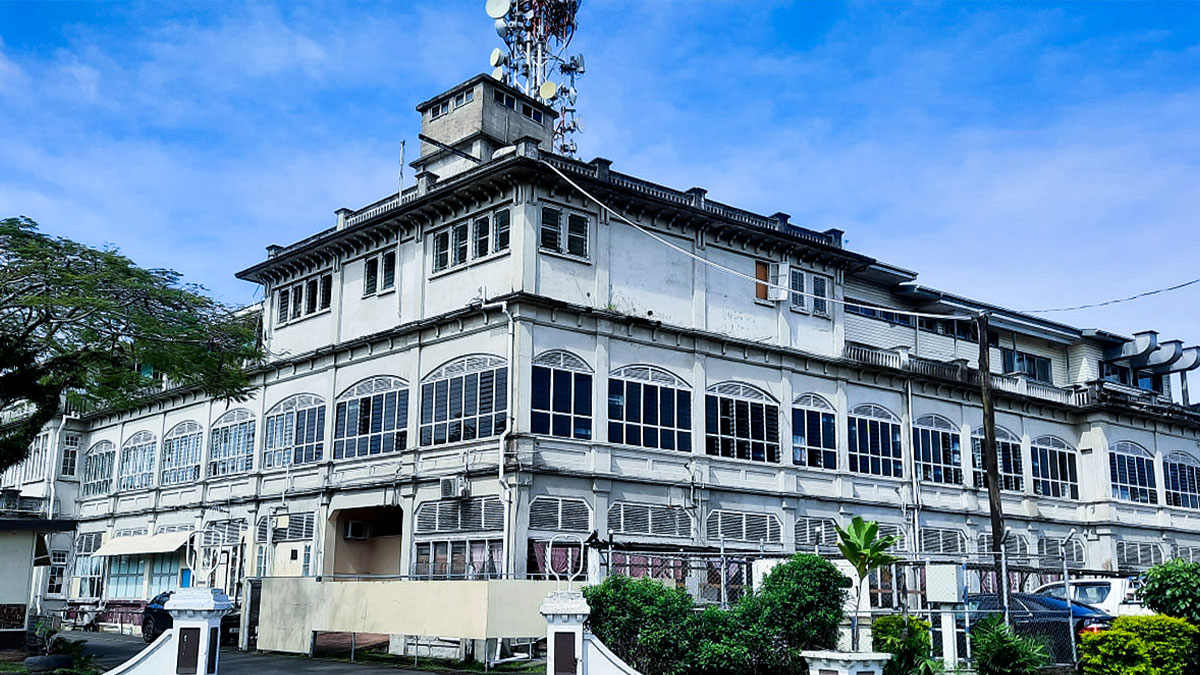
A total of $540 million has been allocated to the Health sector in the 2024/2025 National Budget of which $450 million will go to the Ministry of Health and $90 million for the operations and running of the Ba and Lautoka hospitals under the Public Private Partnership.
This is an increase of over $100 million from the previous Health Budget.
Deputy Prime Minister and Minister for Finance, Professor Biman Prasad says in a bid to improve service delivery, the Coalition Government in collaboration with the Australian Government have embarked on major technical work to put together a master plan for the redevelopment or relocation of CWM Hospital.
$15 million has been provided by the Australian Government towards this initiative and government is in discussion with multilateral partners like the Asian Development Bank and the World Bank for future funding options.
The Indian Government has also given a grant towards the construction and running of a 100 bed super specialty hospital in Nasinu.
Preparation and construction has started behind the FNU Nasinu Campus.
Professor Prasad also highlights that FNPF had not bid to be part of the Aspen project for Ba and Lautoka hospiatls, as the Fund was effectively ordered by the previous government to take an 80 percent stake in a new company called Health Care Fiji Pte Limited, or HCF.
He says FNPF took 80 percent of its shares with 20 percent for Aspen.
He adds FNPF was given no option, and it was given no chance to evaluate this investment for itself or to work out its economic return.
However Health Care Fiji has said to the government that it will work with them to reach a service agreement.
Professor Prasad says unfortunately, the services in the Ba and Lautoka Hospitals are costing about $10 million per month or about $120 million per year.
He says these two hospitals, alone, are consuming more than one-fifth of the entire national health budget.
Professor Prasad says it is important to remember that the Ministry of Health budget is not just about hospitals - it also has to cover administration, preventive health services, disease control and disaster preparation, health screening and many other things.
$4 million has been allocated to Sri Sathya Sai Sanjeevani Children's Hospital.
Professor Prasad further says that those under the social welfare schemes, free medicine scheme and receiving kidney dialysis subsidy get an automatic access without any further assessment or income verification.
He says they need to present their welfare or free medicine card at the participating general practitioners services.
Professor Prasad says they have paid $19 million to extend these services and in the budget and they are estimating an additional cost of $5 million to assist those on kidney dialysis, they have allocated $3 million for the continuation of the $180 per session subsidy for dialysis patients, which was increased from $150 to $180 int the last budget.
He says for the procurement of drugs and medical equipment, around $96 million is provided in the 2024-2025 Budget.
He says for procurement of bio-medical equipment, $15 million is provided and for capital construction and maintenance works, they are providing $12 million for the interior works at the Labasa Hospital, refurbishment and upgrade of our urban and sub-divisional hospitals, health centres and nursing stations, refurbishment of Savusavu health facility and the construction of a new rehabilitation centre in Tamavua.
| 2024-2025 Budget Address | 2024-2025 Budget Supplement | 2024-2025 Budget Estimates |
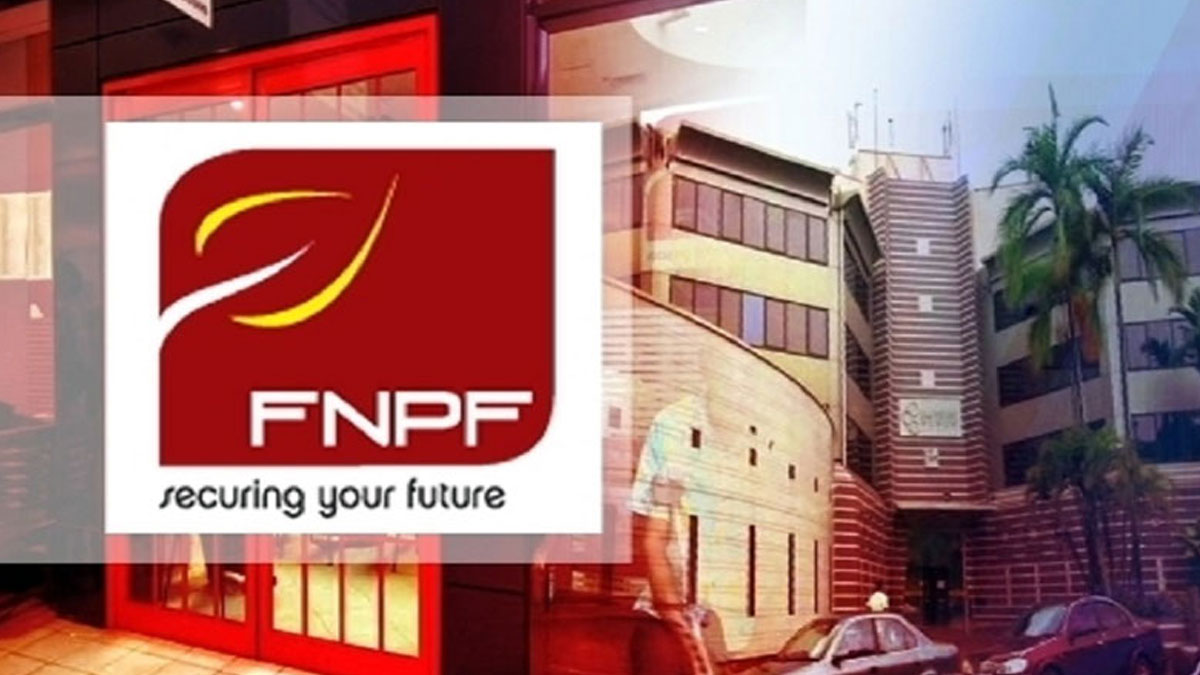
Great news for members of the Fiji National Provident Fund as FNPF has achieved a record interest rate crediting of 8 percent for members, the highest in the last two decades.
A total of $561.5 million will be paid to 417,722 members’ accounts tomorrow.
FNPF Chief Executive Officer Viliame Vodonaivalu says this remarkable achievement is a testament to the effectiveness of their investment strategies, which have been meticulously crafted to optimize returns, diversify their portfolio, and focus on resilient sectors for sustainable growth.
Vodonaivalu says they will continue to uphold their values of integrity, transparency, and accountability in serving the members and the people of Fiji.
He says the increase in income, has been driven by several key contributors.
Vodonaivalu says government bonds have been a significant source of total income earned, accounting for 30 percent of the total.
Equities have also performed well, contributing 51 percent, commercial debt 11 percent and property and other portfolio 8 percent.
He says these results align with their core strategies of optimizing existing investments, diversifying across various asset classes, and focusing on resilient sectors for sustainable returns.
Of the income earned from equities and commercial debt, their telco assets generated 9 percent and hotel assets accounts for 24 percent.
The FNPF CEO says a few of their recent investments are a testament to their forward looking strategy, for example, the acquisition of shares in Future Farms – Rooster Chicken and Fletcher Higgins of Fletcher Construction and the mix-use commercial/industrial property assets.
He adds that with a continued member centric focus, the Fund has made great strides through the enablement of beneficial initiatives such as the inclusion of professional development courses and laptops in the education withdrawals, positive changes in medical and unemployment preretirement benefits and collaboration with institutions such as the I-Taukei Land Trust Board for housing withdrawals.
Members will be able to view their new balance on the myFNPF App and other digital platforms, from Monday 1st July.
FNPF’s digital platforms will be offline on Sunday 30th June from 8am to 7pm.
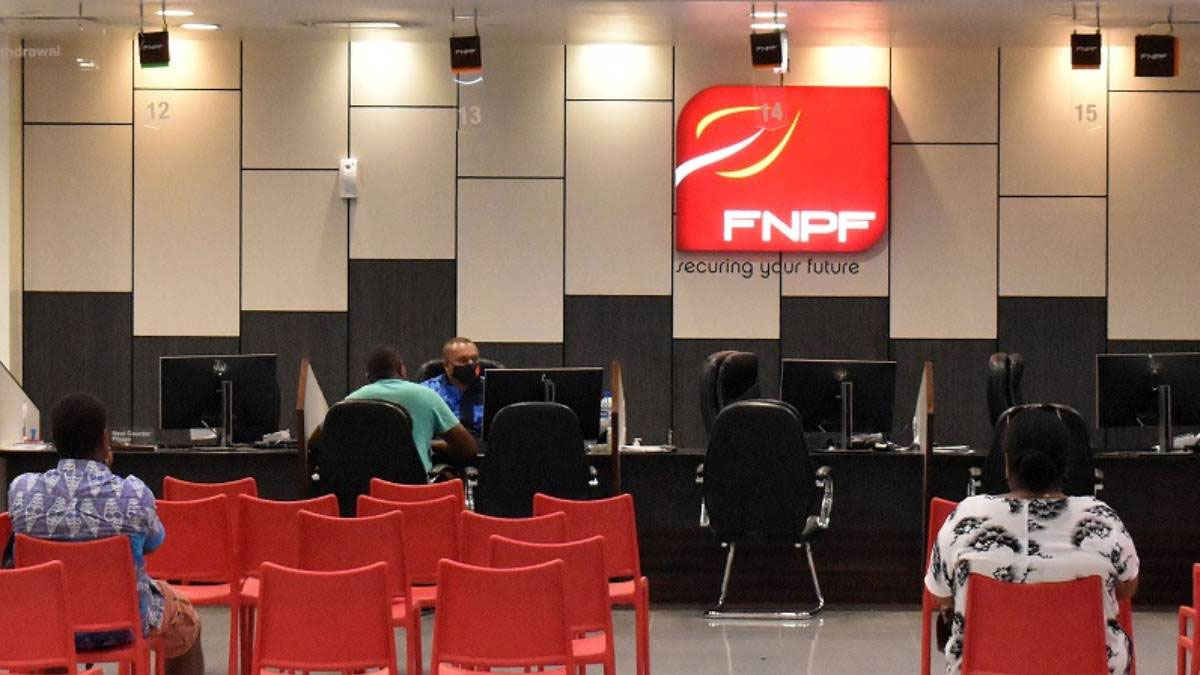
$4 million will be provided in the 2024-2025 National Budget to reinstate the Fiji National Provident Fund pension payments for pensioners that were forced to opt for a reduced pension rate following the 2011 pension reforms by the Bainimarama interim government.
Deputy Prime Minister and Minister for Finance, Professor Biman Prasad says the pension payment will be restored from 1st August 2024 and moving forward.
This only applies to those pensioners that opted for full pension after the reforms and excludes those that fully or partially withdrew their funds.
The full actuarial cost of this reinstatement for around 1,500 pensioners is $57.0 million over the next two decades.
The earlier arrangement for the affected pensioners to access the Government social pension scheme will cease effective 1st August 2024.
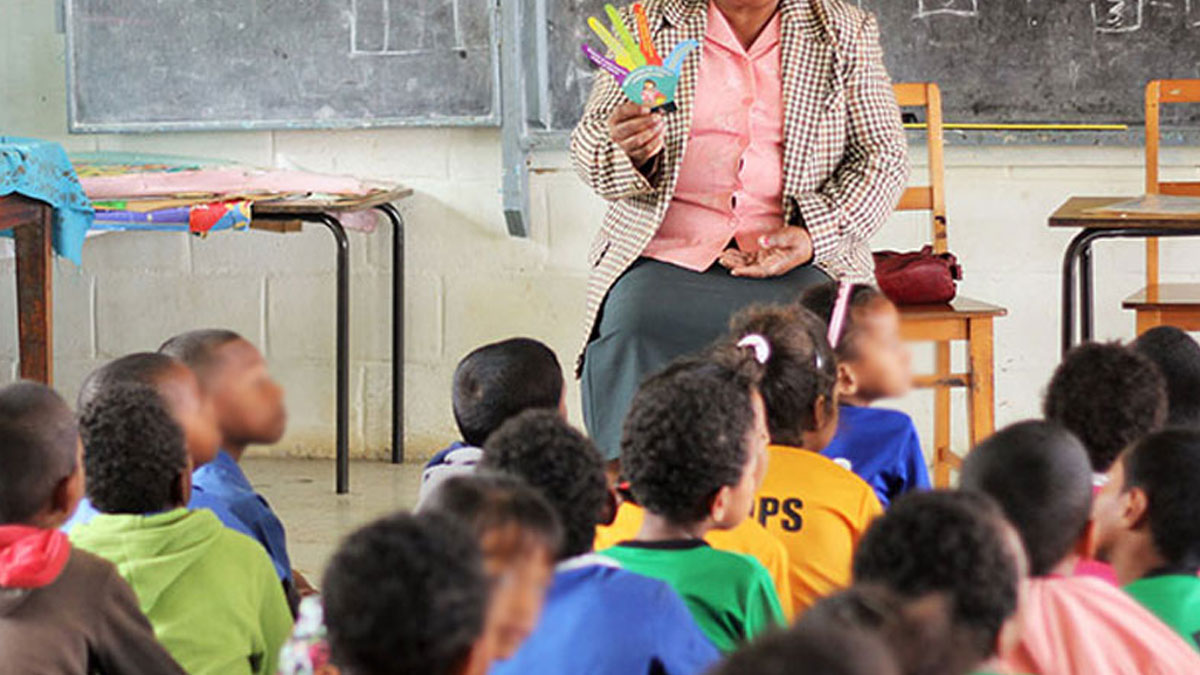
Families with household income of less than $50,000 will have the $200 back to school support for children again next year.
Deputy Prime Minister and Minister for Finance, Professor Biman Prasad says this $200 back to school assistance per child has become one of the flagship initiatives of the Coalition Government.
$40 million has been allocated for this initiative.
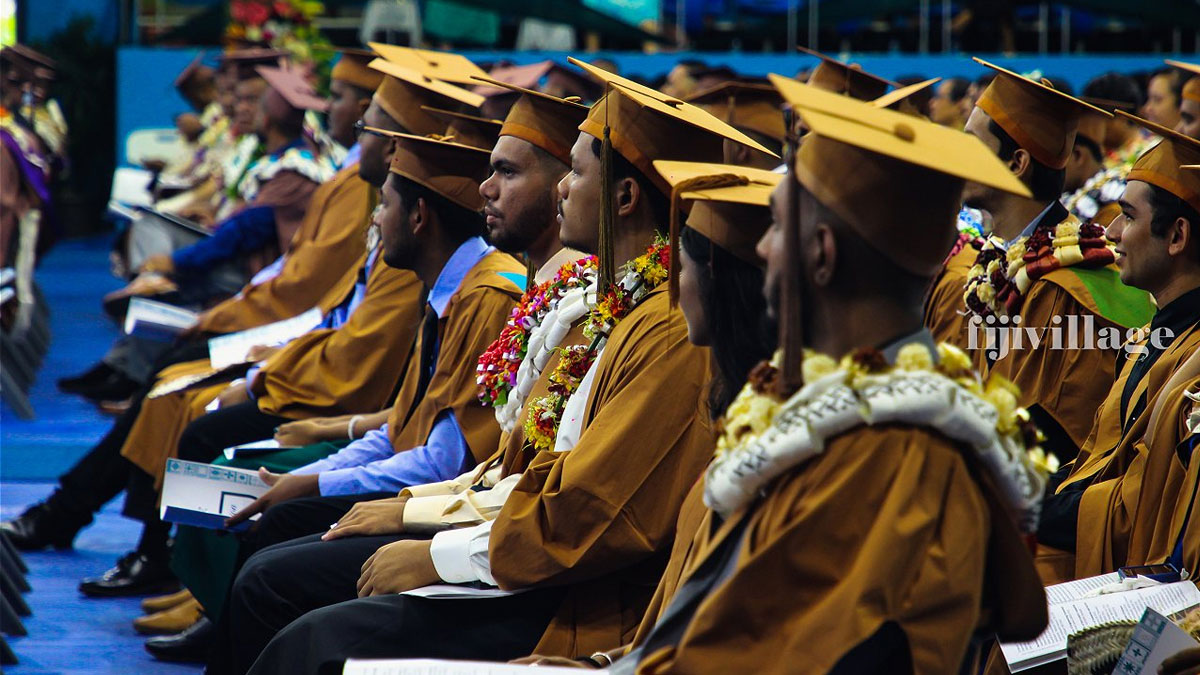
Tertiary institutions are getting $91 million in the 2024/2025 National Budget.
Deputy Prime Minister and Minister for Finance, Professor Biman Prasad stated this in parliament saying as soon as they came into Government, they restored the grant for USP, including their commitment to pay to USP what it was owed after its destructive fight with the previous government.
Professor Prasad says it is important to show that the Government can be trusted to meet its commitments.
He says they immediately identified funding and paid $10 million followed by another $20 million in the last Budget while a further $5 million is allocated for the payment of the outstanding grant.
The Deputy Prime Minister says apart from this, $33.5 million is provided to USP as its normal grant for this year.
He says the Fiji National University will be provided a funding grant of $36.5 million.
Prof. Prasad says the Ministry of Education has commenced the reviews of the tertiary education institutions which includes FNU, and the review will also focus on putting a focus on quality.
He says the University of Fiji is provided an increased grant of $5 million, of which $1 million is for the construction of Center for i-Taukei Studies to support preservation and promotion of indigenous Fijian art and culture through teaching, research and publication.

The Deputy Prime Minister says they have supported Pacific Polytech in the last 2 years and they have created a major impact in the provision of technical training in Fiji to meet the current shortage in the labour market.
He says this institution caters for many of our young people who fall through the cracks in terms of completing their education, or qualifying for a trade – the majority of them are iTaukei students and the government must address this to provide a second chance at a more meaningful future.
Prof. Prasad says since its inception in August 2023, more than 1,100 students have completed various national qualifications under the Fiji National Qualification Framework.
He says to support this further given the exodus of many of our workers, the government is providing an increased grant of $5 million to Pacific Polytech.
The Deputy Prime Minister says the Sangam Institute of Technology is provided a budget of $545,000 for its operations, while an additional $1 million is provided for its capital works to expand its infrastructure in Labasa and start establishment of a new nursing school facility in Nadi.
He says they will fund this over two fiscal years as the work progresses.
Prof. Prasad says a total of $2.2 million is also provided to Corpus Christi, Fulton College, Montfort Technical Institute, Monfort Boys Town, and Vivekananda Technical Centre and two new institutions: Caregivers Training Institute and ServicePro International Tourism Hospitality Institute.
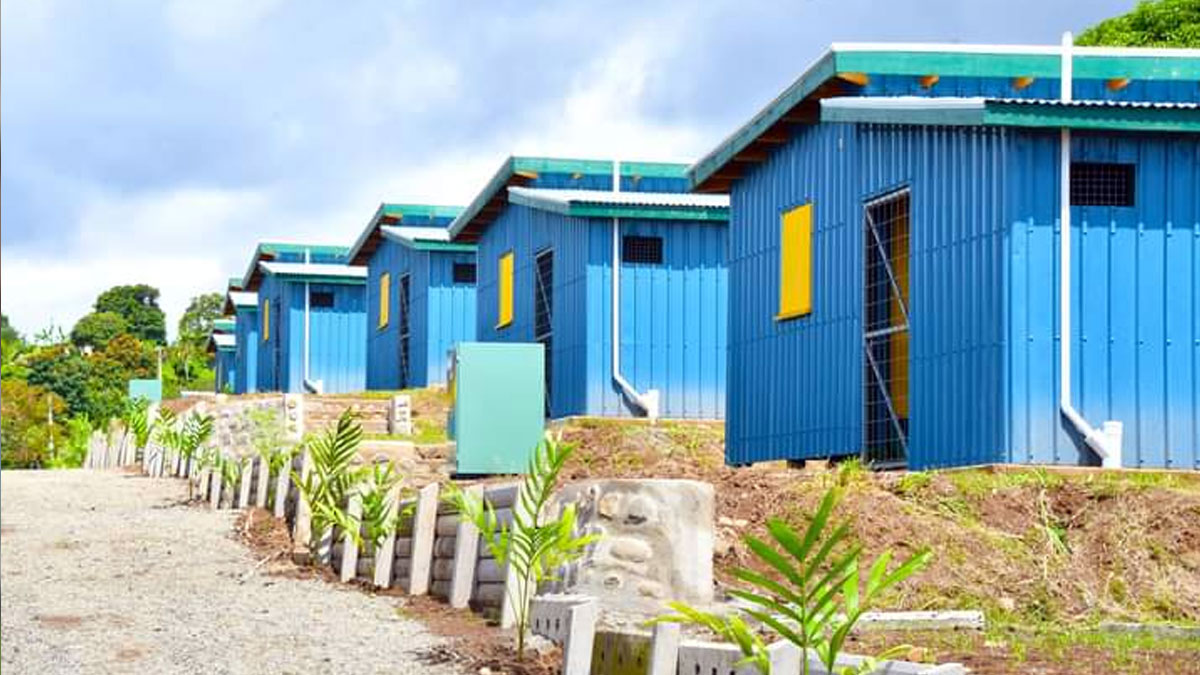
To provide affordable housing to thousands of people in Fiji who do not have their own house, a total of $32.3 million has been allocated to the Ministry of Housing in the 2024/2025 National Budget.
While announcing the budget, Deputy Prime Minister and Minister for Finance, Professor Biman Prasad says as a country there is a serious lag in meeting the increased demand for housing in urban areas.
Professor Prasad says there has been progress in additional housing supply for the middle and high income earners and they haven't had any major breakthrough in providing affordable housing to the low income households.
He says this led to the increase in informal settlements across our urban areas.
The Deputy Prime Minister says to increase the supply of affordable housing units, government had called for a tender for the private sector to develop and build around 3,000 housing units in 5 Housing Authority sites, including Nepani, Raiwaqa, Davuilevu, Wainibuku and Tavakubu.
Professor Prasad says this is a public private sector partnership project that has been designed with the support of International Finance Cooperation, the private sector arm of the World Bank.
He says they are currently assessing the tender bids and a final decision will be made soon. He further says $13.5 million is provided for the formalization of informal settlements, this will cater for ongoing projects in Sakoca, Tavela, Field 4, Tore and commencement of work in Valewaquyaya in Ba and Vunika in Labasa.
Professor Prasad adds to continue with the first home buyers grants, a budget of $5.5 million is provided and a total of $7.9 million is provided for capital grants which will cater for development of the Veikoba bridge to support Housing Authority’s residential lot development in Valelevu, subsidy for Public Rental Board, expansion of the Koroipita model town development and grant to Habitat for Humanity.
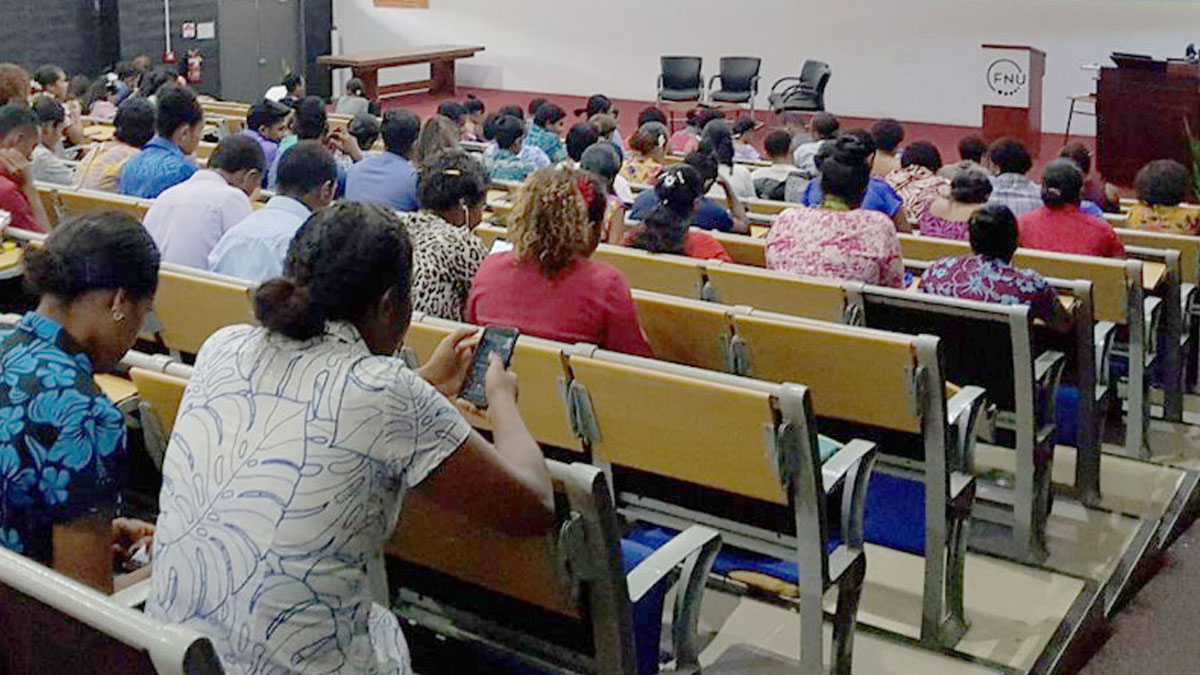
$778 million has been provided towards education and skills development, the largest allocation in the 2024/2025 National Budget.
Deputy Prime Minister and Minister for Finance, Professor Biman Prasad stated this during the 2024/2025 Budget Address today saying it's not just about the dollars that they put in, it’s about the outcomes.
Prof. Prasad says they need to improve the quality of teaching and learning in schools by ensuring that they have the best teachers, the right learning environment, the right curriculum, textbooks and other resources.
He says we need the involvement of our parents, communities, religious groups, development partners and other non-governmental organizations.
The Deputy Prime Minister says unfortunately, this partnership was destroyed by the previous Government’s bullying, dictatorial and micro-managing behaviour which seriously damaged decades-long partnerships built on trust which are the backbone of our education system.
He says we need to bring back these partnerships and inclusivity in the running of our schools if we are to make real progress in improving the quality of education in Fiji.
Prof. Prasad says given the state of affairs in the education sector, they cannot repeat the mistakes of the previous Government by bringing in haphazard changes and reforms without proper consultation and expert guidance.
He says that is why they initiated the National Education Summit last year and brought together our educationists and the best minds to assist.
The Deputy Prime Minister says they are also appointing an Education Commission, made up of experts to help the Government with an independent assessment of the current situation and the interventions that will be needed, including the timing and sequencing of these reforms.
He says in the current budget the Coalition Government has taken decisive measures towards reshaping the Education Sector.
Prof. Prasad says they are increasing the funding for the Ministry of Education to around $628 million.
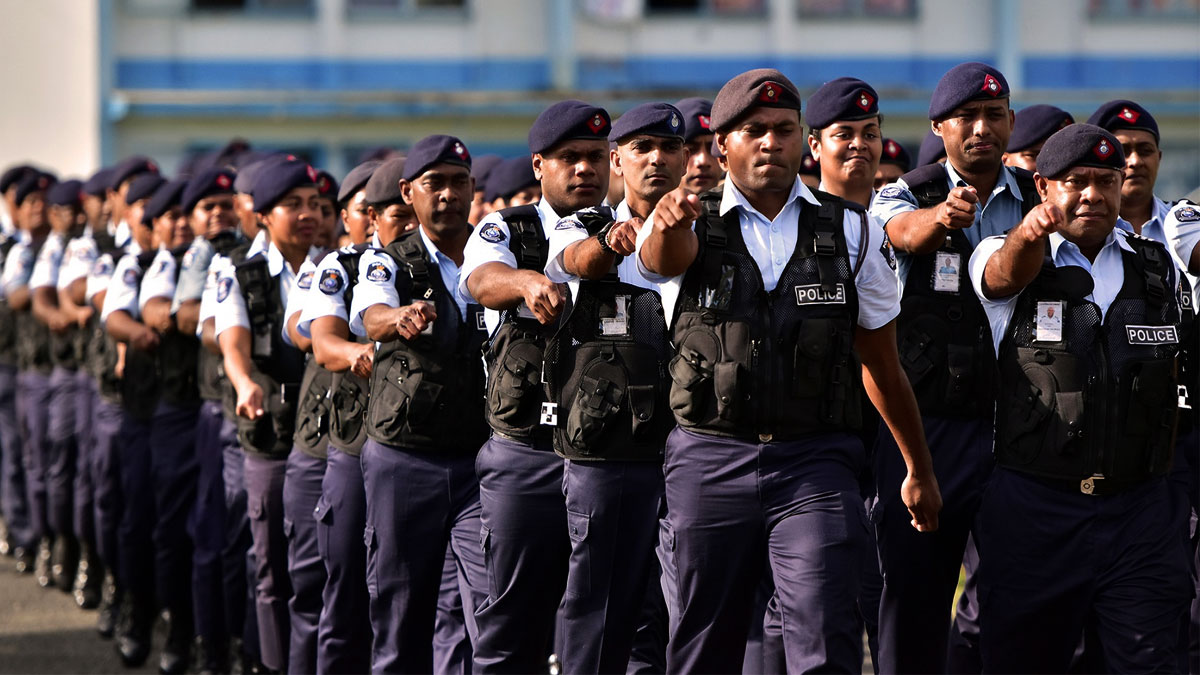
To fight drugs, $2 million has been allocated in the 2024/2025 National Budget to establish a Narcotics Bureau within the Ministry of Home Affairs.
Minister for Finance, Professor Biman Prasad says the Narcotics Bureau will focus on law enforcement; investigations; prosecution; intelligence gathering; and conducting awareness in collaboration with key agencies.
Professor Prasad says the Ministry of Home Affairs has also launched the Counter Narcotics Strategy 2023-2028 with a focus on seven strategic areas, including demand reduction, supply reduction, harm reduction, legal reform, data collection, establishment of a Drug Court, and partnership and international cooperation.
For the set up of drug rehabilitation centres in Fiji, the government has introduced a tax holiday of 13 years, including duty free importation of capital goods required for the establishment of the centre.
They are also going to provide a full tax deduction for businesses that donate to any drug rehabilitation centre. Professor Prasad says whilst they encourage non-governmental organisations, the government is also exploring options for the setup of such centres.
$226.8 million is provided to our Police Force, an increase of $41.7 million.
He says the government is initiating a ‘full reset’ of the Fiji Police Force towards law enforcement.
The Police Reset Strategy would broadly include: development of a new overarching strategy for the Fiji Police Force aimed to modernize the Force through right-sizing and stirring a shift in culture.
Professor Prasad says they are grateful for the support from the Australian Government to help build capacity.
A new MOU will be established between the Fiji Police Force and the Australian Federal Police which will see Australian Federal Police Officers embedded within the Fiji Police Force, and appointment of a mentor to support the new Police Commissioner.
He says through this Police Reset Strategy, the coalition government is committed towards building a police force that serves and protects all members of the society with efficiency, fairness, reasonableness, courtesy, respect and without discrimination or harassment.
Meanwhile Professor Prasad says the Republic of Fiji Military Forces plays an important role in ensuring the safety and security of our nation and supports international peacekeeping.
RFMF is allocated $169.6 million in the new budget.
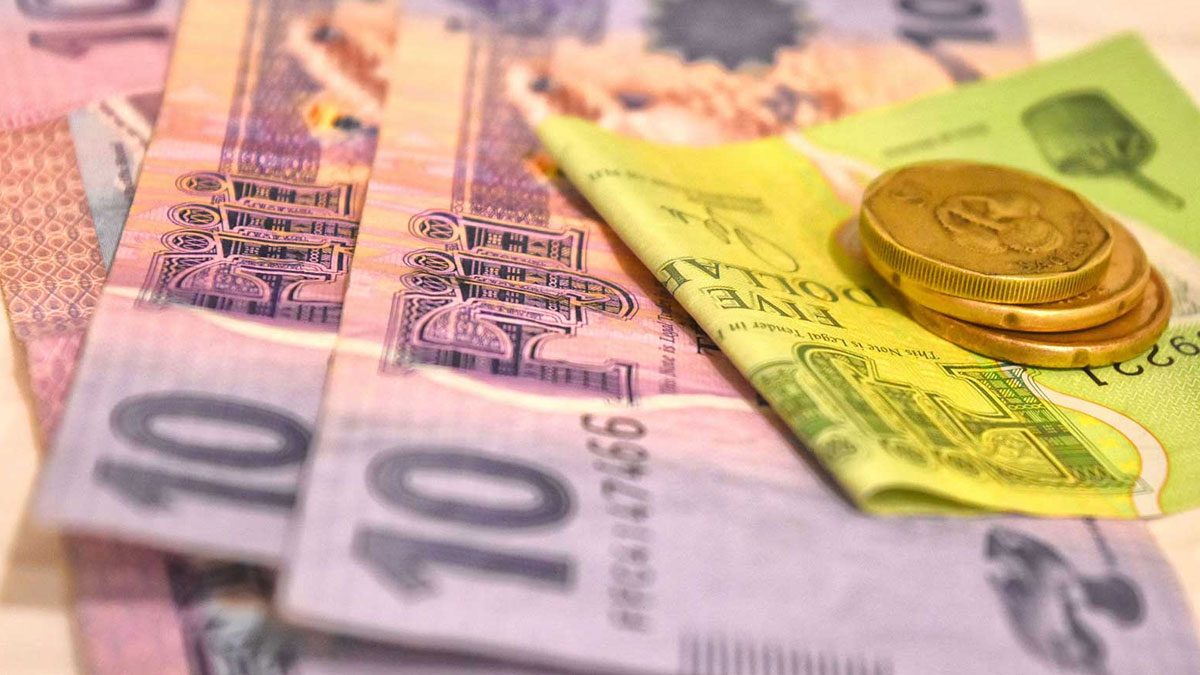
Get ready to pay more for alcohol and cigarettes as excise taxes on these items will increase by 5 percent.
Deputy Prime Minister and Minister for Finance, Professor Biman Prasad says from 1st August 2024, the departure tax will increase from $140 to $170, and return to the pre-pandemic rate of $200 from 1st August 2025.

The 3 percent duty on the importation of raw materials in the last Budget has been removed.
To support construction and bring down building costs, the fiscal duty on prefabricated buildings will reduce from 32 percent to 5 percent while fiscal duty on steel structures or articles of iron will be maintained at 5 percent.

For our hotel incentives, we are extending the SLIP tax holiday to investors who acquire existing hotels and undertake renovations and refurbishments of more than $50 million. This will support major investments like Crowne Plaza and Wananavu resort. At a time when we need more capacity in the tourism sector, we encourage investors to take advantage of this.
In addition, the standard allowance for renovations and extension of hotels will be reduced from 50 percent to 25 percent, similar to pre-COVID levels.

The water resource tax rate will increase from 1 cent per litre to 5 cents per litre, for producers who extract between 0 to less than 10 million litres per month. The rate for producers extracting over 10 million litres per month remains unchanged at 19.5 cents per litre which was increased from 18 cents per litre in the last Budget.
A 200 percent deduction will be allowable for donations over $10,000 towards the 2031 Pacific Games. Similar to the tax incentive provided to Fijian Drua, a 13-year tax holiday, duty concessions on imported sports equipment and 200 percent tax deduction will be extended to Fiji National Rugby League.
The 2024-2025 Budget is set with a total expenditure of $4.552 billion and a total revenue of $3.917 billion.
The fiscal deficit is set at $635.5 million, or 4.5 percent of GDP.
Professor Prasad says the debt to GDP ratio is projected to decline further to around 77.8 percent by the end of July 2025.
He says the FRCS is expected to exceed the $3 billion dollar mark in tax collections for the first time this year.
For the 2024-2025 Budget, tax collections are estimated at $3.3 billion while non-tax revenue collections are budgeted at $618 million.
Stay tuned for the latest news on our radio stations

